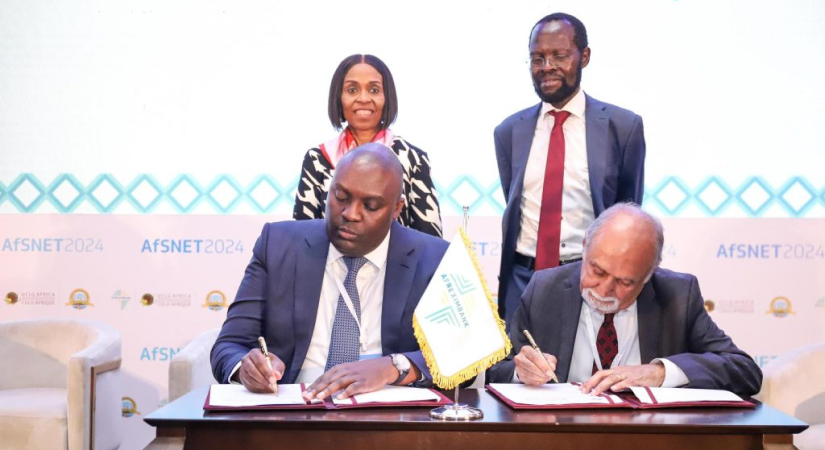Kenya’s Pharma Industry Gets A Boost With Afreximbank-Med Aditus Partnership
Afreximbank & Med Aditus to build a $40M pharmaceutical plant in Kisumu, Kenya, boosting local drug production and regional health security.
Breaking News
Nov 30, 2024
Simantini Singh Deo

Afreximbank and Med Aditus Pharmaceutical Kenya Limited have signed an agreement to support the development of a pharmaceutical manufacturing plant in Kisumu County, Kenya. The agreement, finalized during the AfSNET Conference in Kisumu City, will help fund feasibility studies for the project.
The plant, set to cost $40 million, will cover 10 acres in Kibos and produce up to two billion tablets and capsules annually. It will focus on medicines for non-communicable diseases like diabetes, cancer, and cardiovascular conditions, as well as treatments for infectious diseases such as HIV, malaria, tuberculosis, and neglected tropical diseases.
The new pharmaceutical manufacturing plant will be a modern facility built to meet Current Good Manufacturing Practice (cGMP) standards. It will use continuous manufacturing technology and a blockchain-based quality management system, offering an innovative approach to pharmaceutical production—a first in Africa.
This facility is expected to boost local production of essential medicines, making them more affordable and accessible in Kenya and neighbouring countries. It will help improve resilience against supply chain issues and reduce the spread of counterfeit and substandard medicines.
Afreximbank’s involvement is part of its "Africa Health Security Investment Plan," aimed at supporting the continent's efforts to manufacture health products locally. This initiative is crucial for addressing Africa's health investment challenges, driving economic growth, and enhancing health security across the region.
The agreement was signed during the 4th Africa Sub-Sovereign Network (AfSNET) conference in Kisumu, with His Excellency Professor Peter Anyang' Nyong’o, Governor of Kisumu County, and Mrs. Kanayo Awani, Executive Vice President for Intra-African Trade and Export Development, in attendance. Mr. Zitto Alfayo, Head of Project Preparation at Afreximbank, signed on behalf of the bank, while Dr. Dhiren Thakker, CEO of Med Aditus, signed for the company.
Sharing her thoughts on the deal, Mrs. Awani expressed her enthusiasm for the launch of the Med Aditus Pharmaceuticals initiative, stating, “The partnership with Med Aditus demonstrates Afreximbank’s close cooperation with public and private partners to accelerate the development of innovative solutions for combating deadly diseases and scaling up healthcare financing and delivery. Afreximbank is committed to enhancing partnerships with local and international stakeholders to boost investment and support innovative technologies. The project’s strategic location in Kisumu, at the heart of the Great Lakes Region, gives it access to markets in Kenya, Uganda, Tanzania, the DR Congo, Rwanda, Burundi, and South Sudan, thereby promoting intra-African trade within the AfCFTA context.”
She continued, “I am particularly thrilled by the critical role the County Government of Kisumu played in support of this project by availing the project site and facilitating the partnership with the Great Lakes University of Kisumu to support local technical skills and capacities. This once again highlights the transformative roles sub-sovereign governments play as engines for broad-based economic development.”
Dr. Thakker said in a statement, “Med Aditus Group is excited to partner with Afreximbank to establish a first-of-its-kind pharmaceutical manufacturing enterprise in Kisumu, Kenya. The plant will facilitate access to high-quality, affordable medicines for the citizens of Kenya, East Africa, and the continent at large. Med Aditus Group’s commitment is to promote rapid growth of local pharmaceutical manufacturing that will enhance healthcare outcomes of the people and stimulate economic development throughout the region.”
He further added, “By leveraging continuous modular manufacturing technology alongside blockchain integration in manufacturing, distribution, supply chain logistics, and ultimately patient engagement, deployed for the first time in Africa, the continent will leapfrog into a leading producer and supplier of high-quality affordable medicines for its people and the global community.”
